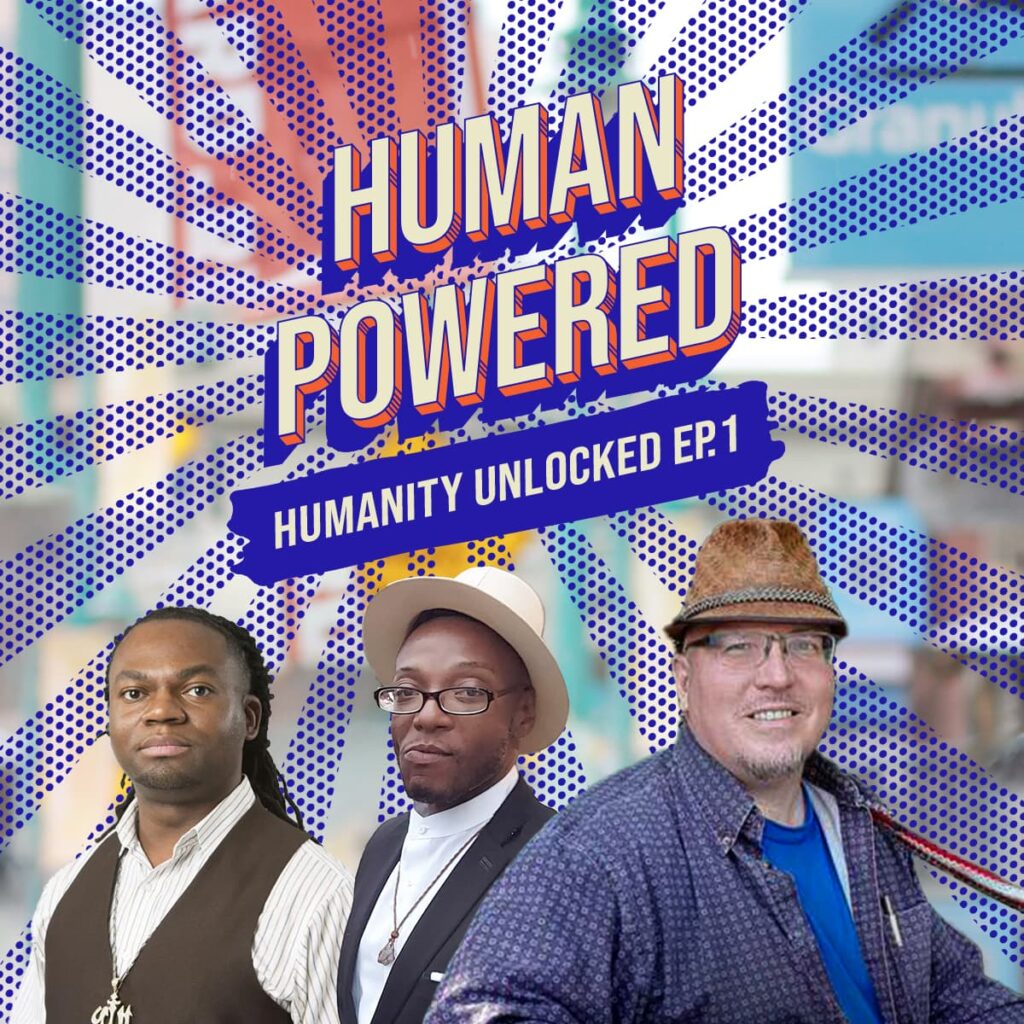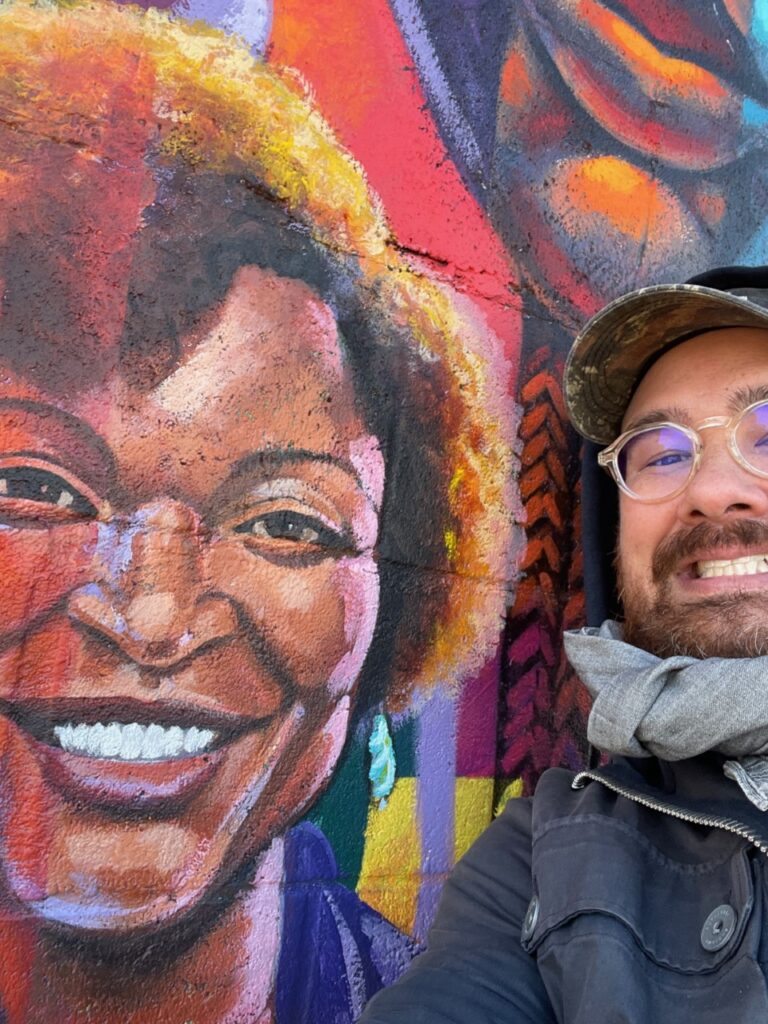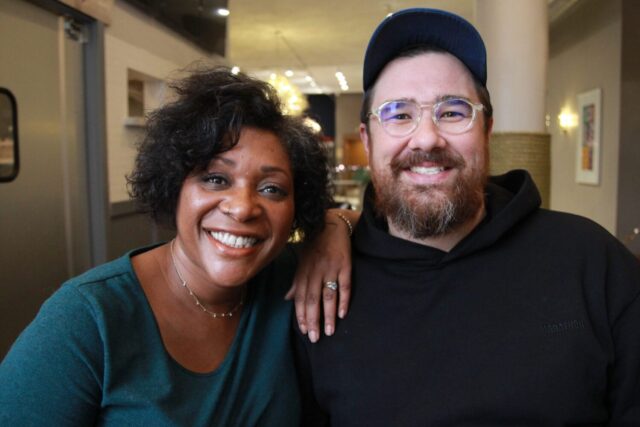Wisconsin Humanities is a nonprofit, nonpartisan organization that looks to strengthen democracy through education, cultural programs, and sharing stories by supporting individuals and organizations across Wisconsin since 1972.
One of the ways Wisconsin Humanities reaches audiences across the state on important topics around real people is through a podcast called Human Powered “Humanity Unlocked.” Already in its second season with co-hosts Adam Carr and Dasha Kelly Hamilton, the podcast is underway exploring topics around the justice system and the impact it has had on people.
Dasha Kelly Hamilton, a writer, performance artist, and former Poet Laureate for the City of Milwaukee as well as the State of Wisconsin, was happy to share how future episodes of the podcast will continue to press into the range of effects that the justice system has on people and families. 
“You’re able to hear these human realities about these policy debates that we keep having about the idea of incarceration, abolishing prisons or not, and mandatory sentencing,” Hamilton told Madison365. “All of these things that, yes, we say it’s in the conversation of safety, but is it? It’s not a political discussion, this is about the human cost. The social casualty and real day-to-day, heartfelt realities of people who are making the best out of the situation they find themselves in. The overall goal of the podcast is to remind people that we’re talking about people.”
Hamilton was first introduced to the project and the idea of coming on board the podcast by Jen Rubin who is a producer for Human Powered as well as a workshop leader for the Odyssey Project’s Odyssey Beyond Bars. Rubin and Hamilton’s work with imprisoned people drove the second season of Human Powered to center not only the experience of people in Wisconsin prisons, but also people they are connected to on the outside.
Hamilton pointed towards crimeless revocation as being a particular piece of Wisconsin’s justice system that drives recidivism and is especially dangerous for those who are Black and brown in the justice system as they are disproportionately negatively impacted by such policies. 
“The restrictions that we have on people once they have already done their time in prison is as traumatic and unrealistic in many cases, as people face when they get into jail. There are a lot of people that get sent back to prison, not because they’ve committed another crime, but because of some administrative or bureaucratic discernment and decision. That by itself adds to the number of people that are in prison, and for people that are home, it also affects their quality of life,” she said, further speaking to how issues with the prison system are often seen as solely Black or brown problems or exclusively for large cities.
Hamilton continued, “Secondly, because we are talking in ideologies, not in practicalities, Wisconsin is an example of a state where this prison industry is what has been driving so much of our ‘politics’ when you have decisions to build prisons because the idea of a prison produces jobs for small rural communities.”
An upcoming episode gestures towards the stark reality of racial disparities in the justice system through the perspective of a formerly imprisoned white man who, while struggling to get back on his feet after being released, now sees the additional barriers there are for people of color, even when going through similar programs to support post-prison transition.
Hamilton looked forward to episodes that will allow people to hear and understand perspectives from those who may not often have a voice, such as a mother of an imprisoned person and those who are themselves in programs in the prisons.
“We’re seeing the humanity in these humans, as opposed to focusing on why they’re in those buildings,” said Hamilton. “That becomes a different invitation on how we treat them and care for them, and offer them adjustments for the next part of their life. Then the second half is how anybody gets in these buildings. What’s not happening in the schools and what conversations are we not having about mental health?”
Hamilton stressed the importance of considering how policy, cultural apathy towards those considered criminal, and a refusal to acknowledge the material conditions that lead to crime all perpetuate a system that continues to deeply, negatively impact people in daily ways.

However, there’s hope that programs such as Odyssey Behind Bars and other programs individuals like Hamilton work to implement for imprisoned people will continue to provide first-hand alternatives for those who need it most, as well as evidence to provide grounds that investing in better options and opportunities is critical.
“Being creative and creative strategies and not just about the arts, but yes, the arts, invites people into conversations in new ways. It emboldens people in ways that statistics and lectures and training and those types of things don’t always reach them,” Hamilton said, speaking to how implementing systemic ways to increase access to programs can help move towards acknowledging the humanity of imprisoned people.
“There should also be a budget, or at least a conversation of how we expand that budget to account for their humanity. Some arts, some inspiration, and some idea building. We want them prepared for their next life and for them to be healed, to be whole, and have skills.”
To check out the Human Powered podcast and to learn more about Wisconsin Humanities, check out their website page here.




























